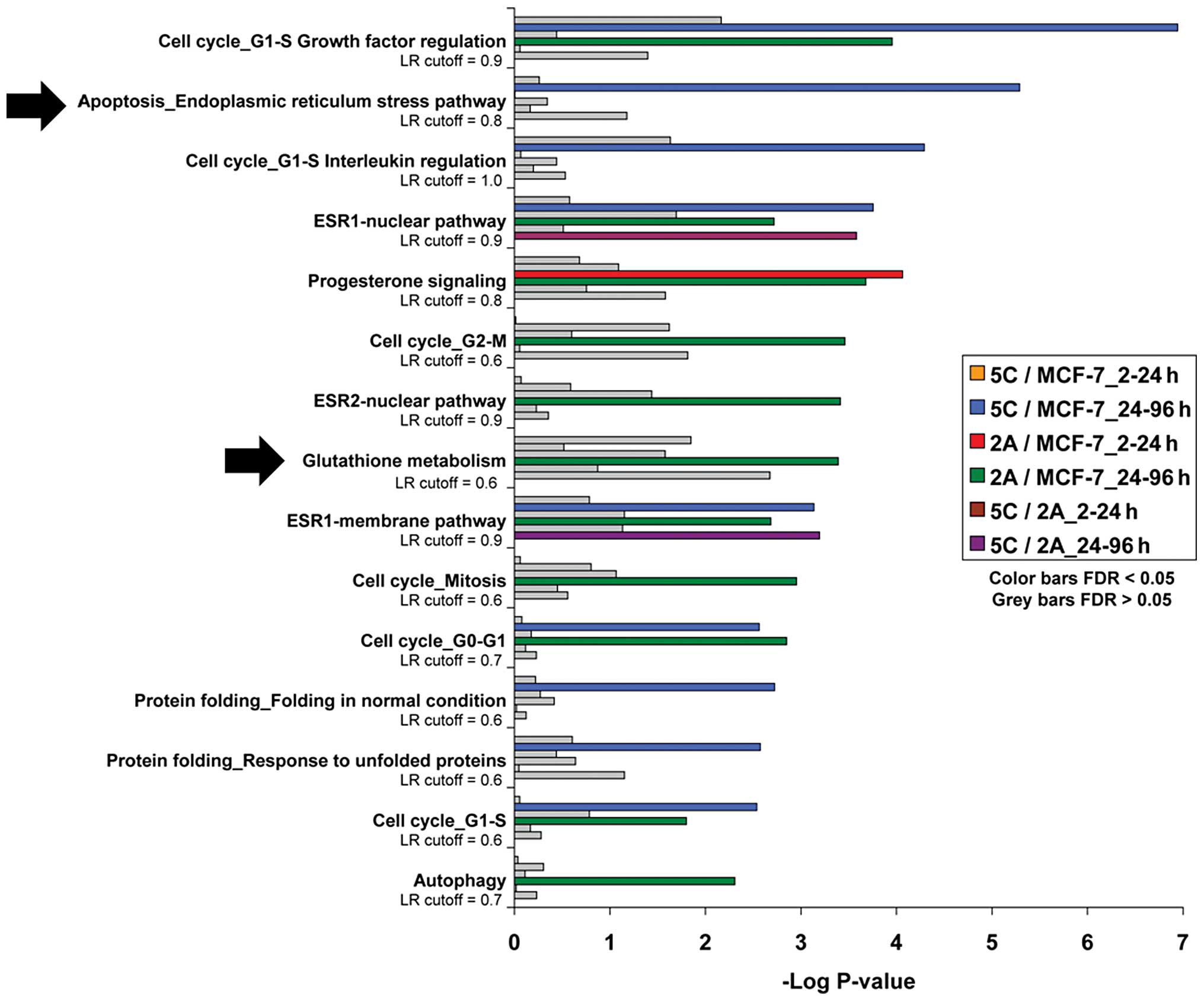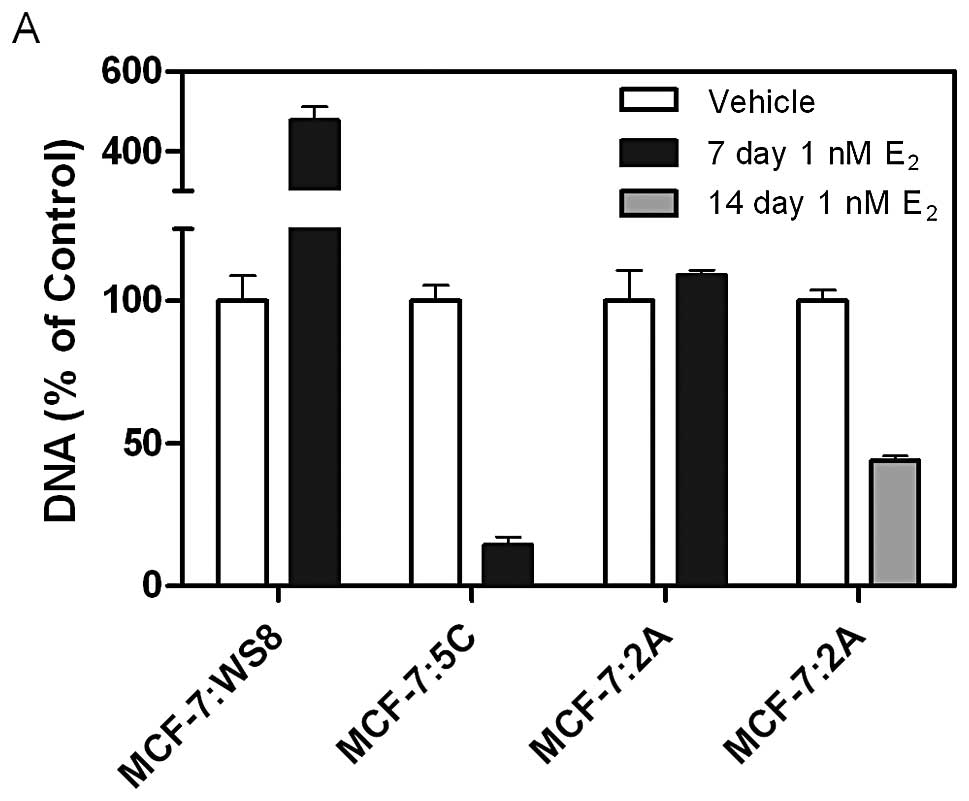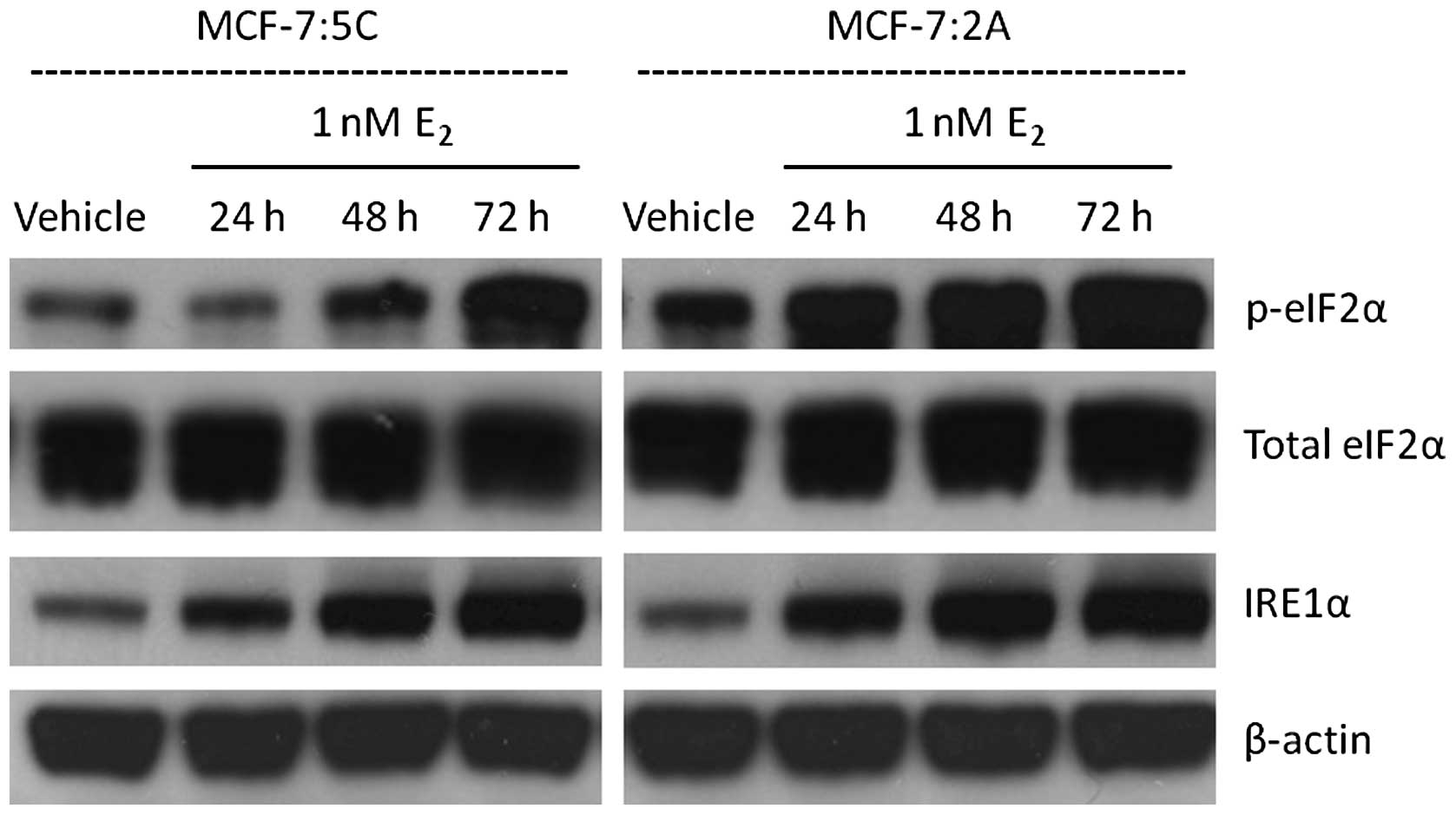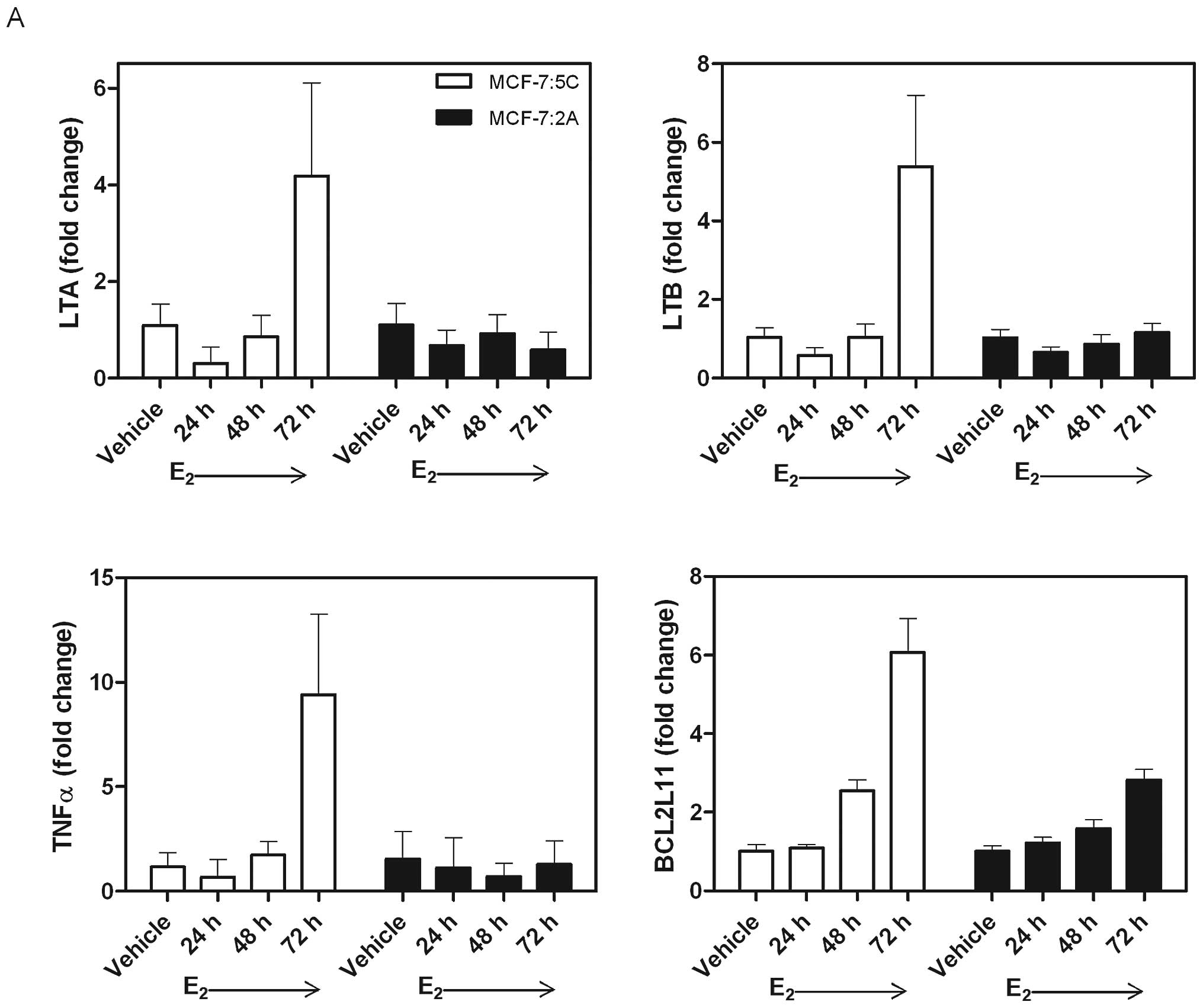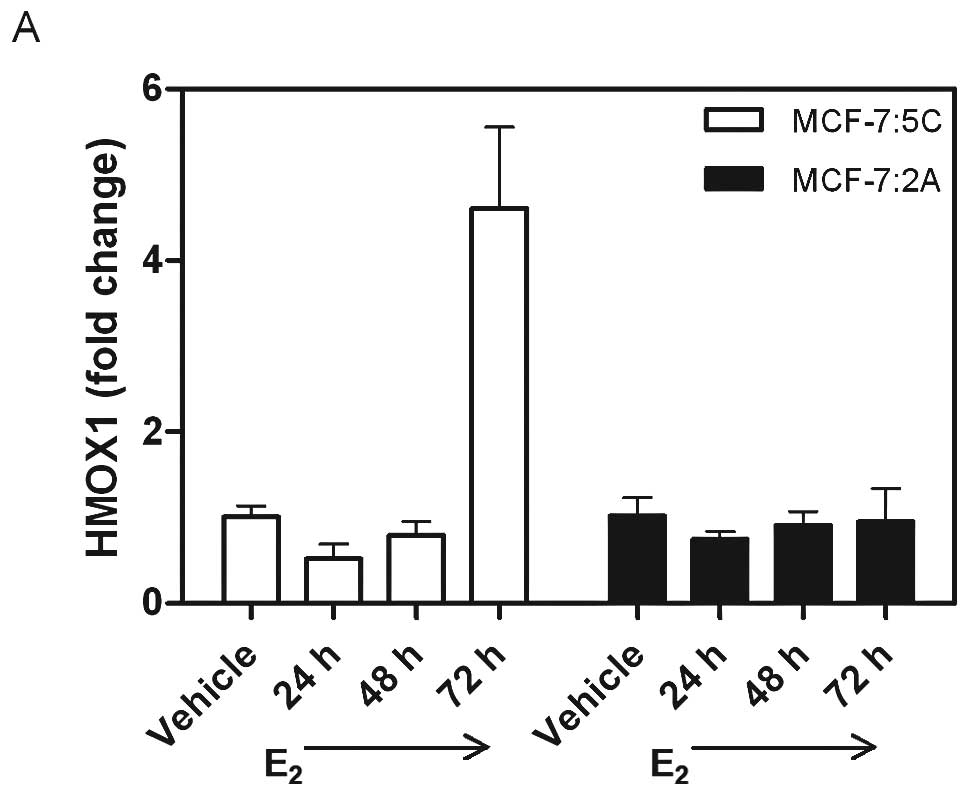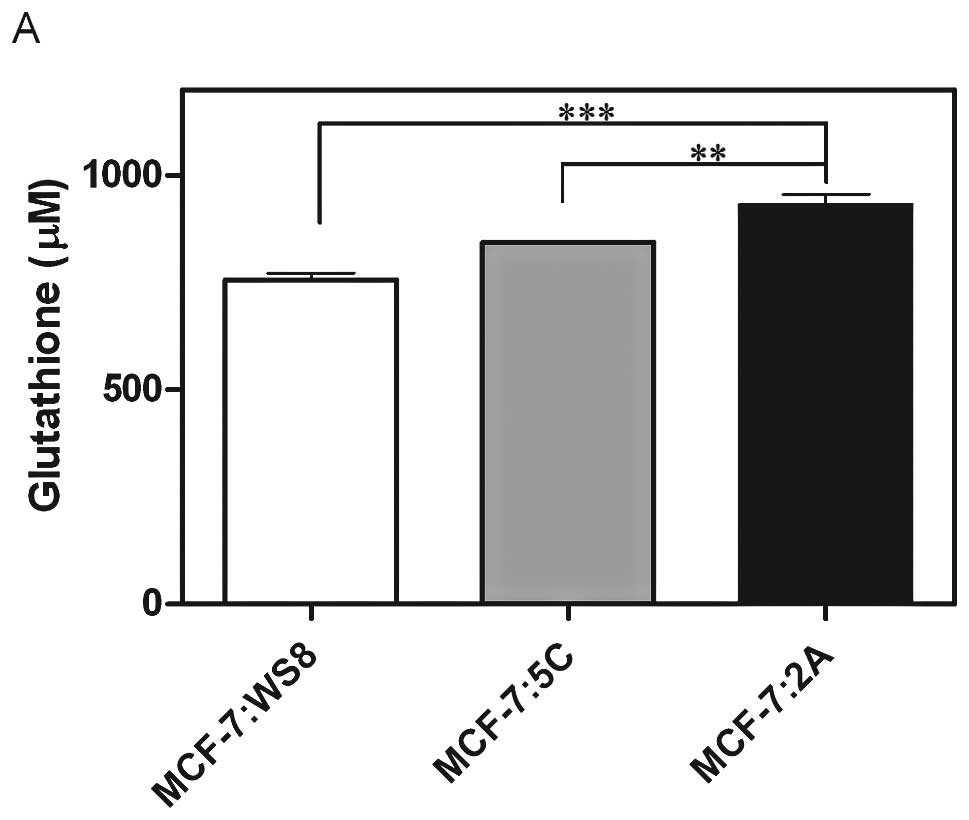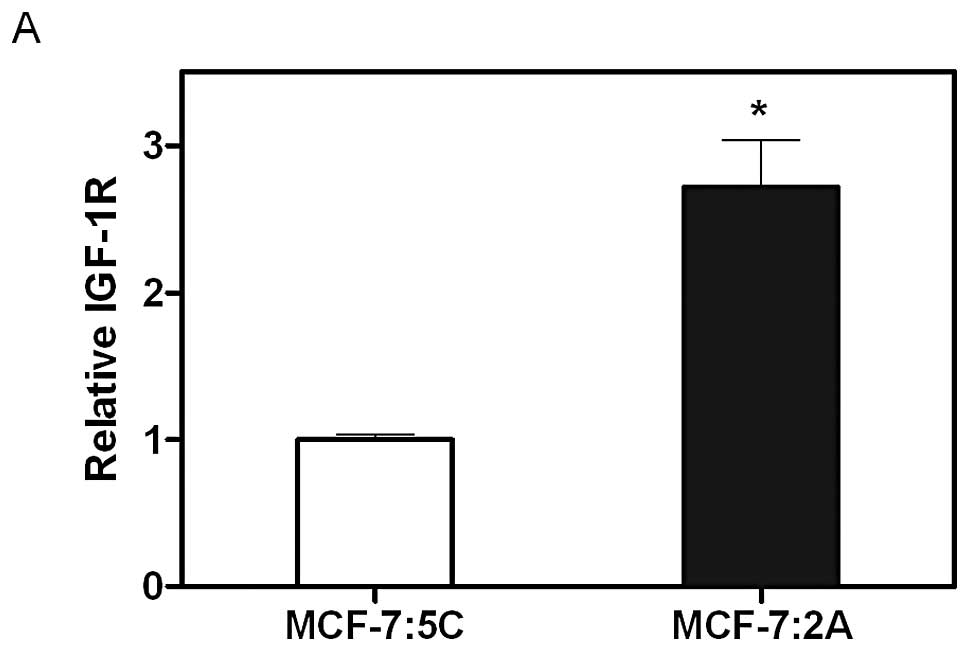|
1.
|
Sweeney EE, McDaniel RE, Maximov PY, Fan P
and Jordan VC: Models and mechanisms of acquired resistance in
breast cancer: Significant clinical progress despite limitations.
Hom Mol Biol Clin Investig. 9:143–163. 2012.PubMed/NCBI
|
|
2.
|
Jiang SY, Wolf DM, Yingling JM, Chang C
and Jordan VC: An estrogen receptor positive MCF-7 clone that is
resistant to anti-estrogens and estradiol. Mol Cell Endocrinol.
90:77–86. 1992. View Article : Google Scholar : PubMed/NCBI
|
|
3.
|
Lewis JS, Osipo C, Meeke K and Jordan VC:
Estrogen-induced apoptosis in a breast cancer model resistant to
long-term estrogen withdrawal. J Steroid Biochem Mol Biol.
94:131–141. 2005. View Article : Google Scholar : PubMed/NCBI
|
|
4.
|
Pink JJ, Jiang SY, Fritsch M and Jordan
VC: An estrogen-independent MCF-7 breast cancer cell line which
contains a novel 80-kilodalton estrogen receptor-related protein.
Cancer Res. 55:2583–2590. 1995.
|
|
5.
|
Pink JJ and Jordan VC: Models of estrogen
receptor regulation by estrogens and antiestrogens in breast cancer
cell lines. Cancer Res. 56:2321–2330. 1996.PubMed/NCBI
|
|
6.
|
Pink JJ, Wu SQ, Wolf DM, Bilimoria MM and
Jordan VC: A novel 80 kDa human estrogen receptor containing a
duplication of exons 6 and 7. Nucleic Acids Res. 24:962–969. 1996.
View Article : Google Scholar : PubMed/NCBI
|
|
7.
|
Lewis JS, Meeke K, Osipo C, Ross EA,
Kidawi N, Li T, Bell E, Changel NS and Jordan VC: Intrinsic
mechanism of estradiol-induced apoptosis in breast cancer cells
resistant to estrogen deprivation. J Natl Cancer Inst.
97:1746–1759. 2005. View Article : Google Scholar
|
|
8.
|
Ariazi EA, Cunliffe HE, Lewis-Wambi JS,
Slif ker MJ, Willis AL, Ramos P, Tapia C, Kim HR, Yerrum S, Sharma
CG, Nicolas E, Balagurunathan Y, Ross EA and Jordan VC: Estrogen
induces apoptosis in estrogen deprivation-resistant breast cancer
through stress responses as identified by global gene expression
across time. Proc Natl Acad Sci USA. 108:18879–18886. 2011.
View Article : Google Scholar
|
|
9.
|
Fan P, Griffith OL, Agboke FA, Anur P, Zou
X, McDaniel RE, Creswell K, Kim SH, Katzenellenbogen JA, Gray JW
and Jordan VC: c-Src modulates estrogen-induced stress and
apoptosis in estrogen-deprived breast cancer cells. Cancer Res.
73:4510–4520. 2013. View Article : Google Scholar : PubMed/NCBI
|
|
10.
|
Ellis MJ, Gao F, Dehdashti F, Jeffe DB,
Marcom PK, Carey LA, Dickler MN, Silverman P, Fleming GF,
Kommareddy A, Jamalabadi-Majidi S, Crowder R and Siegel BA:
Lower-dose vs high-dose oral estradiol therapy of hormone receptor
positive, aromatase inhibitor resistant advanced breast cancer: A
Phase 2 randomized study. JAMA. 302:774–780. 2009. View Article : Google Scholar
|
|
11.
|
Fan P, McDaniel RM, Kim HR, Clagett D,
Haddad B and Jordan VC: Modulating therapeutic effects of the c-Src
inhibitor via oestrogen receptor and human epidermal growth factor
receptor 2 in breast cancer cell lines. Eur J Cancer. 48:3488–3498.
2012. View Article : Google Scholar
|
|
12.
|
Anderson GL, Limacher M, Assaf AR,
Bassford T, Beresford SA, Black H, Bonds D, Brunner R, Brzyski R,
Caan B, Chlebowski R, Curb D, Gass M, Hays J, Heiss G, Hendrix S,
Howard BV, Hsia J, Hubbell A, Jackson R, Johnson KC, Judd H,
Kotchen JM, Kuller L, LaCroix AZ, Lane D, Langer RD, Lasser N,
Lewis CE, Manson J, Margolis K, Ockene J, O’Sullivan MJ, Phillips
L, Prentice RL, Ritenbaugh C, Robbins J, Rossouw JE, Sarto G,
Stefanick ML, Van Horn L, Wactawski-Wende J, Wallace R and
Wassertheil-Smoller S; Women’s Health Initiative Steering
Committee: Effects of conjugated equine estrogen in post-menopausal
women with hysterectomy: the Women’s Health Initiative randomized
controlled trial. J Am Med Assoc. 291:1701–1712. 2004.
|
|
13.
|
Doroshow JH: Glutathione peroxidase and
oxidative stress. Toxicol Lett. 82–83:395–398. 1995.
|
|
14.
|
Siemankowski LM, Morreale J and Briehl MM:
Antioxidant defenses in the TNF-treated MCF-7 cells: selective
increase in MnSOD. Free Radic Biol Med. 26:919–924. 1999.
View Article : Google Scholar : PubMed/NCBI
|
|
15.
|
Lee YJ, Chen JC, Amoscato AA, Bennouna J,
Spitz DR, Suntharalingam M and Rhee JG: Protective role of Bcl2 in
metabolic oxidative stress-induced cell death. J Cell Sci.
114:677–684. 2001.PubMed/NCBI
|
|
16.
|
Brodie A, Macedo L and Sabnis G: Aromatase
resistance mechanisms in model systems in vivo. J Steroid Biochem
Mol Biol. 118:283–287. 2010. View Article : Google Scholar : PubMed/NCBI
|
|
17.
|
Fox EM, Miller TW, Balko JM, Kuba MG,
Sanchez V, Smith RA, Liu S, Gonzalez-Angulo AM, Mills GB, Ye F,
Shyr Y, Manning HC, Buck E and Arteaga CL: A kinome-wide screen
identifies the insulin/IGF-I receptor pathway as a mechanism of
escape from hormone dependence in breast cancer. Cancer Res.
71:6773–6784. 2011. View Article : Google Scholar : PubMed/NCBI
|
|
18.
|
Osborne CK and Schiff R: Mechanisms of
endocrine resistance in breast cancer. Annu Rev Med. 62:233–247.
2011. View Article : Google Scholar : PubMed/NCBI
|
|
19.
|
Lee JY, Han CY, Yang JW, Smith C, Kim SK,
Lee EY, Kim SG and Kang KW: Induction of glutathione transferase in
insulin-like growth factor type I receptor-overexpressed hepatoma
cells. Mol Pharmacol. 72:1082–1093. 2007. View Article : Google Scholar : PubMed/NCBI
|















